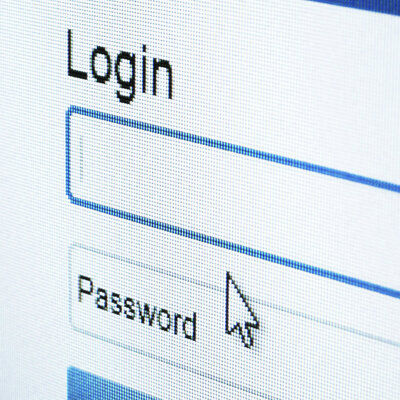Hackers used loopholes in the security at Amazon and Apple to obtain personal information about a
Wired writer, who says his
entire digital life was "destroyed." Experts say to ward off hackers, pick good passwords and get rid of unused accounts.
iStockphoto.com
Hacking. We often think of it happening to companies or
governments. But it also happens to ordinary people. Mat Honan is a
technology writer for
Wired magazine whose computer and
Internet accounts were hacked.
"I
lost a year and a half of pictures of my daughter, pictures of her with
her great-grandparents who are now deceased. You know, wonderful
precious memories that I'm hoping to get back,"
Honan told NPR's Morning Edition.
The hackers used loopholes in the security at Amazon and Apple to
obtain personal information about Honan. Both companies say they are
addressing security problems.
Some of what happened to Honan was avoidable. What's scary about
his situation is that almost all of us are vulnerable. But we can take
steps to stop it.
Step 1: Tough passwords
You
need to have a separate password for each account, so that if one
account gets hacked, all of your vital information is not vulnerable.
The problem is that it's tough to remember dozens of passwords. The
answer: a password manager. There are a variety of third-party software
programs that will create and store passwords for you.
"It's
just ridiculous that people are still creating their own passwords,"
says Lance Ulanoff, chief editor at Mashable.com. This is the first and
simplest thing you can do. Ulanoff says it also takes away the anxiety
that comes along with password management.
Step 2: Two-Part Authentication
When
you log on to many different computers — especially shared computers —
to access your email account, you are especially vulnerable to hackers.
Many websites are moving toward two-step verification.
Google is one.
Essentially, it means that you need more than a password to log into a
new account. If you use the service, you have to remember a password but
also remember a special key that gets sent to you as a text.
Step 3: Change Your Behavior
"I hate to say it, but the reality is they need to share a little bit less," says Ulanoff.
Ulanoff
says we probably don't want to go back to the pre-social media days,
but oversharing may not be just embarrassing, it may cause harm. Things
like birth dates and graduation years can be used to access your
information. That doesn't mean you need to shut down your online
presence, but be careful what details you put out there.
Step 4: Consolidation
Remember
Friendster? Or MySpace? Whitson Gordon, senior editor of
Lifehacker.com, says that back in the early days of the Internet, it
would have been hard to imagine "10, 20 years down the road when we
would have so many services we're grappling with."
So sit down
and think about the last 10 years of your online life. And then delete
the accounts for the services you signed up for and no longer use.
Step 5: Back It Up
"If
there's one thing I have to hammer home with everybody, it's back up
your data," Gordon says. You can either use an external hard drive or an
online service.
As more of the things we care about get stored electronically, the more
vulnerable they are to get lost. If your smartphone gets stolen with
wedding photos on it, there won't be as much heartbreak.
Doing all of this takes time, energy and money. But being hacked can be the gateway to identity theft or worse.
Both Gordon and Ulanoff say it's worth the effort for the security.
For other tips on protecting yourself online, you can visit a special
FBI website.


 #ref-menu
#ref-menu